Orthodontics
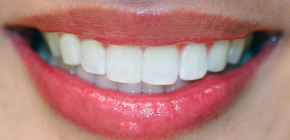
Of all the distinguished types of closing of teeth, the so-called orthognathic bite is considered the most physiological - if it is present in a person, as a rule, the face is symmetrical, the smile is beautiful and there are no problems with diction and chewing. In fact, this is the standard (ideal) to which orthodontists try to bring the patient’s dentofacial system during treatment. Let's see in more detail what other signs are characteristic of an orthognathic bite and what problems can be observed even if it is present ...
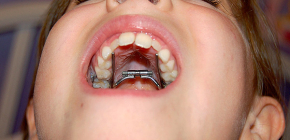
Today, there are a large number of removable and non-removable orthodontic appliances for occlusal correction in children, used during the period of a milk, removable and forming permanent occlusion. Subject to the correct wearing mode, some of these designs are considered very effective, and their use often avoids fixing braces. Next, we will consider the most frequently used today in orthodontic practice apparatus for correcting the occlusion, talk about the mechanism of their action and the achieved treatment results ...
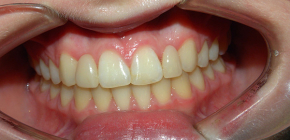
The transition from a milky bite to a permanent one is characterized by a number of important nuances that it is useful for parents to know about in advance in order to identify emerging problems and take steps to eliminate them. We will talk more about the most important characteristics of a permanent bite, as well as what problems can be observed with it and which treatment is optimal in a given situation.
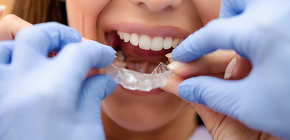
When it comes to bite correction, most people have braces immediately. However, it is possible to correct incorrect bite effectively not only on bracket systems, but also with the use of an orthodontic cap system. The most common option is a set of transparent drops that tightly fit your teeth, which the patient successively wears during the course of treatment, replacing each time the desired intermediate result is achieved. There are other varieties of orthodontic cap…
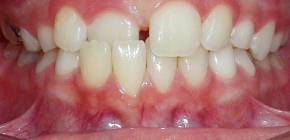
As the name implies, the most characteristic feature of the so-called cross bite is the intersection (crossing) of the dentition when the jaws are closed. In many cases, this pathology is quite difficult to treat, and sometimes appropriate measures to correct the bite can last for years. About what reasons lead to the formation of a cross bite, what approaches to correct it in children and adults are used today and what can happen if nothing is done, we will talk about all this further ...
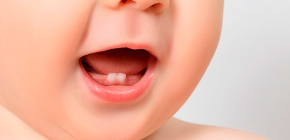
Oddly enough, but many parents do not pay enough attention to the condition of their baby’s milk teeth - they say that they are temporary, they will soon fall out and become permanent. Meanwhile, the stage of formation of the milk bite is very important for the further development of the entire dentition of the child. About what problems can await the baby during the period of teething and change of milk teeth, what are the causes of these problems and how to deal with them, and also what is important for parents to know about this in general - we will talk about all this in more detail ...
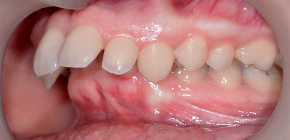
It may seem surprising, but a distal bite is a very common pathology - in one degree or another, it is observed in almost 20-30% of the European population.Whether this malocclusion anomaly can seriously harm human health, how it affects the facial profile and whether it is worth correcting (treating) the distal bite - let's talk about all this in more detail ...
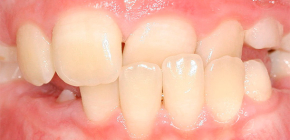
No one is safe from the formation of a malocclusion - anomalies in the location of the dentition relative to each other can occur not only in childhood, but also in adults, and at almost any stage of life. And then we will consider what kind of bite anomalies are generally encountered, and also provide important information (including for parents of children), which will make it more meaningful to approach the treatment and prevention of occlusion defects.
In this section, we will focus mainly on various bite defects and methods for their correction (correction).
